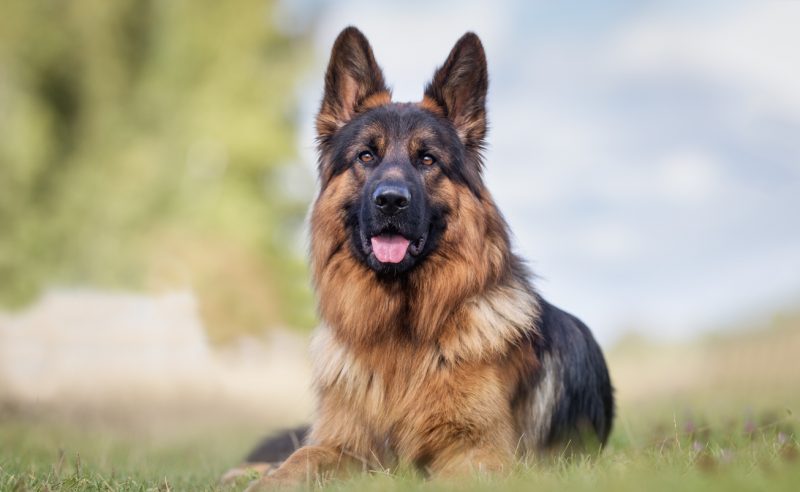There are few friends more steadfastly loyal than those of the canine variety. During the Second World War, a German Shepherd named Antis proved his fearless devotion and undying loyalty to his master – Robert Bozdech, a Royal Air Force bomber pilot – many times over, even when caught in the middle of bombing raids, or when their aircraft was being torn up by anti-aircraft fire.
Indeed, Antis was the only dog in the war ever to accompany a pilot on a combat mission. In 1949, Antis was awarded the Dickin Medal, the highest award for bravery an animal can receive.
Antis’s life almost ended shortly after it began. In 1939, French pilot Pierre Duval and his Czech gunner Robert Bozdech were flying a reconnaissance mission over Germany when they were shot down. They crash-landed in some woods in No Man’s Land between France and Germany.
Bozdech – who had fled his native Czechoslovakia in 1938 when the Nazis invaded, after which he had joined the French Air Force – was uninjured. He dragged the wounded Duval from the wreckage of the plane and helped him to an abandoned farmhouse he had spotted in the distance.
They planned to wait there until nightfall. Then, under cover of darkness, they could get across the French border and back to safety.
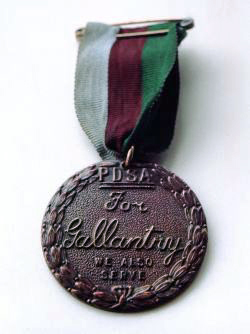
While the farmhouse looked abandoned, when Bozdech pushed open the door, he heard movement inside. With his pistol drawn and cocked, he demanded that whoever was inside reveal themselves. What came creeping out of the darkness toward him, though, was no Nazi soldier, but it was German – a German Shepherd puppy, to be exact.
Having always had a soft spot for animals, Bozdech melted some snow for the puppy to drink. He also gave it some of his rations, as it looked emaciated and seemed very weak. The pup kept him and Duval company until darkness fell, then it was time to leave.
Bozdech felt bad about leaving the puppy behind to fend for itself in the empty house, but this was war; there was no time for sentimentality, only survival. He left the pup behind with a heavy heart, but shortly after he and Duval had left the house, the puppy started howling and whining.
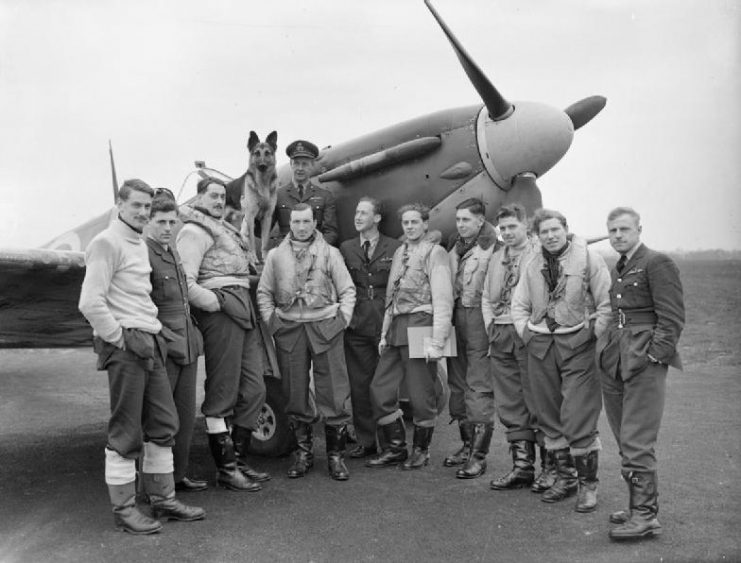
Concerned that this racket would attract the attention of the Nazis, who were searching for the downed pilots, the pair decided that there was only one way to silence the pup: they would have to kill it. Bozdech looked for a large rock so that he could end the puppy’s life quickly and mercifully.
But when it came to actually doing the deed, he found that he couldn’t do it. He put the rock down, slipped the puppy into his jacket, and snuck off into the night.
Duval, Bozdech, and the puppy made it back across the border, and French soldiers escorted them to safety. Duval was taken to a hospital, but Bozdech and the puppy boarded a single-engine plane, which took them to an airbase. This was the first of many flights the dog would end up taking.
Bozdech called the dog “Ant,” named for the Russian dive-bomber ANT airplanes, of which Czech airmen were fond. Later, Bozdech extended the dog’s name to Antis, to avoid having his name sound too similar to the English word “aunt.”
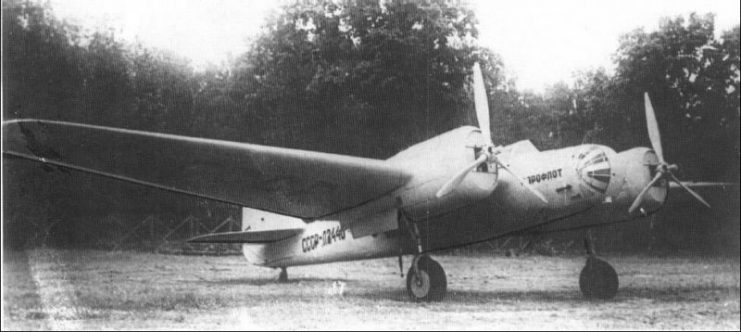
The airmen were all very fond of Antis, but a particularly strong bond developed between Bozdech and the dog. Antis soon showed himself to be not just a companion, but an especially valuable member of the squadron.
Bozdech had trained Antis to obey basic commands like “sit,” “stand,” and “stay,” but on the morning of May 10th, 1940, Antis suddenly had no interest in either playing or obeying his commands. Instead, he stood stiff-legged, his hackles raised, staring at the distant horizon and growling.
The reason for his sudden and inexplicable aggression soon became clear: the sky quickly darkened with the approach of Luftwaffe Dornier DO17 bomber planes. The bombs started falling thick and fast. Bozdech grabbed Antis and dived into a trench with him, where they survived the raid, shaken but uninjured.
![A formation of Dornier Do 17Zs, circa 1940.Photo: Bundesarchiv, Bild 101I-342-0603-25 / Ketelhohn [Kettelhohn] / CC-BY-SA 3.0](https://www.warhistoryonline.com/wp-content/uploads/sites/64/2019/02/a-formation-of-dornier-do-17zs-circa-1940-741x512.jpg)
Bozdech was later transferred to Britain for a time where, after a minor car accident, he was restricted to administrative duties in Liverpool. One evening, he and Antis were out for a walk when suddenly the dog went stiff and started to growl. Sure enough, within minutes the sky was dark with Luftwaffe bombers.
As the bombs began to rain down, Bozdech threw himself on top of Antis to protect him.
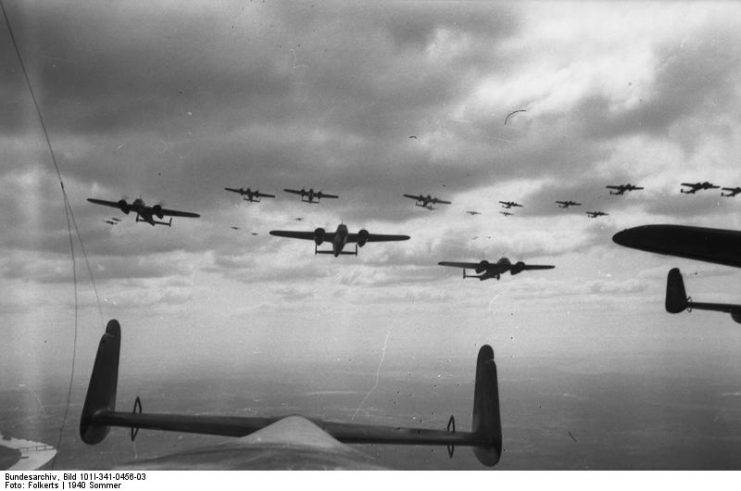
After the raid was over, Antis immediately got up and started sniffing through the rubble of ruined buildings and barking. In this way, the canine hero managed to sniff out and save six survivors trapped under the rubble, including a baby.
When Bozdech was fit for duty again, he resumed flying bombing missions, this time from an airbase at Suffolk. Antis accompanied him there but was not allowed on the airplanes. Whenever Bozdech would take off for a mission, Antis would sit and wait forlornly, refusing to sleep or eat, only perking up once his master returned.
One day, though, Bozdech was due to fly a mission when Antis disappeared. He searched frantically all over the airbase, but with only twenty minutes until take-off, he had to abandon his search and get to his bomber.
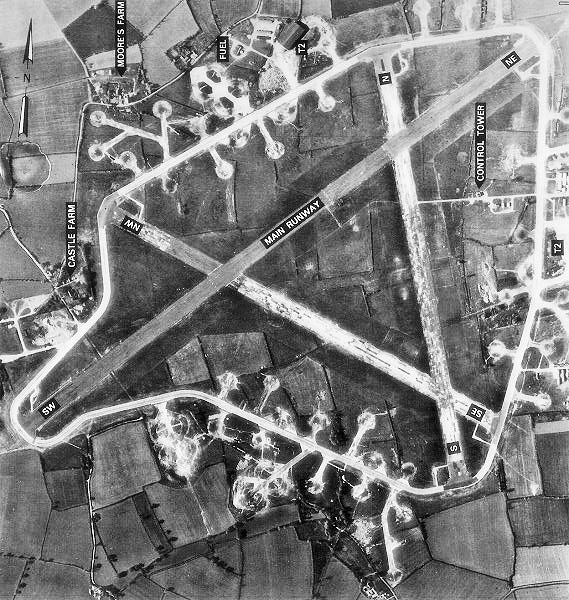
As soon as he was in the air, though, he discovered where Antis was – the dog had managed to hide himself away in the airplane and had kept quiet until they were up in the air. Once they had reached cruising altitude, though, Antis started to have difficulty breathing, so Bozdech pulled off his own oxygen mask and took turns breathing through it with Antis.
Even though it was strictly forbidden to have animals on a warplane, officers made an exception for Antis. He even got his own specially-designed breathing apparatus for the missions he flew.
Antis ended up flying a number of missions with his master and was wounded twice in action. After the war was over, Antis stayed with Bozdech, who returned to Czechoslovakia. When the communists took over, though, he had to flee his country once again, and he took Antis with him.
Antis continued to prove himself to be a valuable companion, helping Bozdech to detect border patrols and assisting him to escape undetected. Bozdech ended up settling permanently in Britain, along with Antis, who was awarded the Dickin Medal – the most prestigious medal an animal can get – in 1949.
Read another story from us: THEO – The Dog Who Received The Animal Equivalent Of The Victoria Cross
Antis lived out the rest of his life in peace, passing away in 1953, at the age of 13.
Bozdech never had another dog after Antis, perhaps too heartbroken after losing his best friend with whom he had been through so much. He passed away in 1980 at the age of 67.
